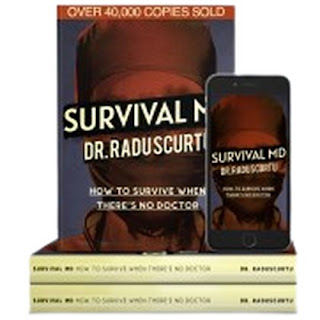Affiliate Disclaimer Thank you if you use our links, we really appreciate it
In the face of unforeseen crises, taking proactive measures to safeguard your health is paramount. By implementing these essential preparedness strategies, you can empower yourself to effectively manage chronic conditions, prevent common injuries, and navigate crises with confidence.
Remember, preparedness is not about fear or anxiety; it’s about taking control of your well-being and ensuring that you have the knowledge and resources to face any challenge that may come your way. By taking action today, you can protect yourself and your loved ones and emerge from crises stronger and more resilient.
Navigating Crises and Safeguarding Health: Essential Preparedness Strategies for Chronic Illness Management
In the face of unexpected crises, individuals with chronic health conditions, such as diabetes, heart disease, and dementia, face heightened risks due to disruptions in medication availability and healthcare access. These disruptions can exacerbate existing conditions, making preparedness paramount. This article delves into essential strategies for effectively managing chronic conditions, preventing common injuries, and safeguarding overall health during crises.
Mastering Self-Care for Chronic Illness
Maintaining self-care during a crisis is crucial for individuals with chronic health conditions. Here are some key strategies:
Managing Medication Shortages:
Stockpile Essential Medications: Maintain a sufficient supply of essential medications to weather potential shortages.
Explore Generic Alternatives: Consider generic alternatives to brand-name medications to reduce costs and improve accessibility.
Treating Common Injuries:
Equip Yourself with First Aid Skills: Enroll in first aid training to gain the knowledge and skills to handle common injuries effectively.
Maintain a Well-Stocked First Aid Kit: Keep a well-stocked first aid kit readily available to treat minor injuries and emergencies.
Preventing Infectious Diseases:
Practice Proper Hygiene: Maintain strict hygiene practices, including frequent hand washing and disinfecting surfaces, to prevent the spread of infections.
Utilize Protective Gear: Consider using personal protective equipment (PPE), such as masks and gloves, when in high-risk environments.
Harnessing Natural Remedies for Enhanced Well-being
Natural remedies can play a significant role in maintaining optimal health during crises, especially when prescription medications are limited:
The Vascular Failure Protocol:
Developed by Dr. Scurtu, this protocol provides a comprehensive approach to managing cardiovascular disease without relying solely on prescription medications.
Delicious and Nutritious Recipes:
Explore recipes that incorporate nutrient-dense and readily available ingredients to support overall health and well-being.
Natural Alternatives to Chronic Medications:
Research and utilize effective natural alternatives to prescription medications to ensure continued care in the absence of traditional medical resources.
Empowering Yourself with Essential Preparedness Knowledge
Enhancing preparedness with critical knowledge and strategies is essential for navigating crises effectively:
Predicting Death with 83% Accuracy:
Learn to utilize the Glasgow Coma Scale (GCS) to accurately assess an individual’s condition and prioritize care during emergencies.
Establishing Proper Sanitation Practices:
Develop practical and effective methods for waste disposal, such as building an outhouse, waste burner, and compost bin, to maintain a clean and sanitary environment.
Assembling Essential Medical Kits:
Equip yourself with the best medical response kits, hygiene packs, first aid kits, and bug-out bags to address a wide range of medical needs in a crisis.
Uncovering Subtle Signs of Danger
Recognizing subtle signs that indicate an impending crisis can help you take timely action to protect yourself and your loved ones:
Heeding the Warning Signs:
Be alert to subtle changes in behavior or physical appearance that may signal an impending crisis.
Reacting Effectively to Improve Survival Odds:
Understand the best course of action when faced with potential threats, such as natural disasters or social unrest, to enhance your chances of survival.
Safeguarding Health and Well-being in Times of Crisis
By taking proactive measures and equipping yourself with essential knowledge, you can effectively manage chronic health conditions, prevent common injuries, and navigate crises with confidence. Remember, preparedness is key to safeguarding your health and well-being, especially in challenging times.
